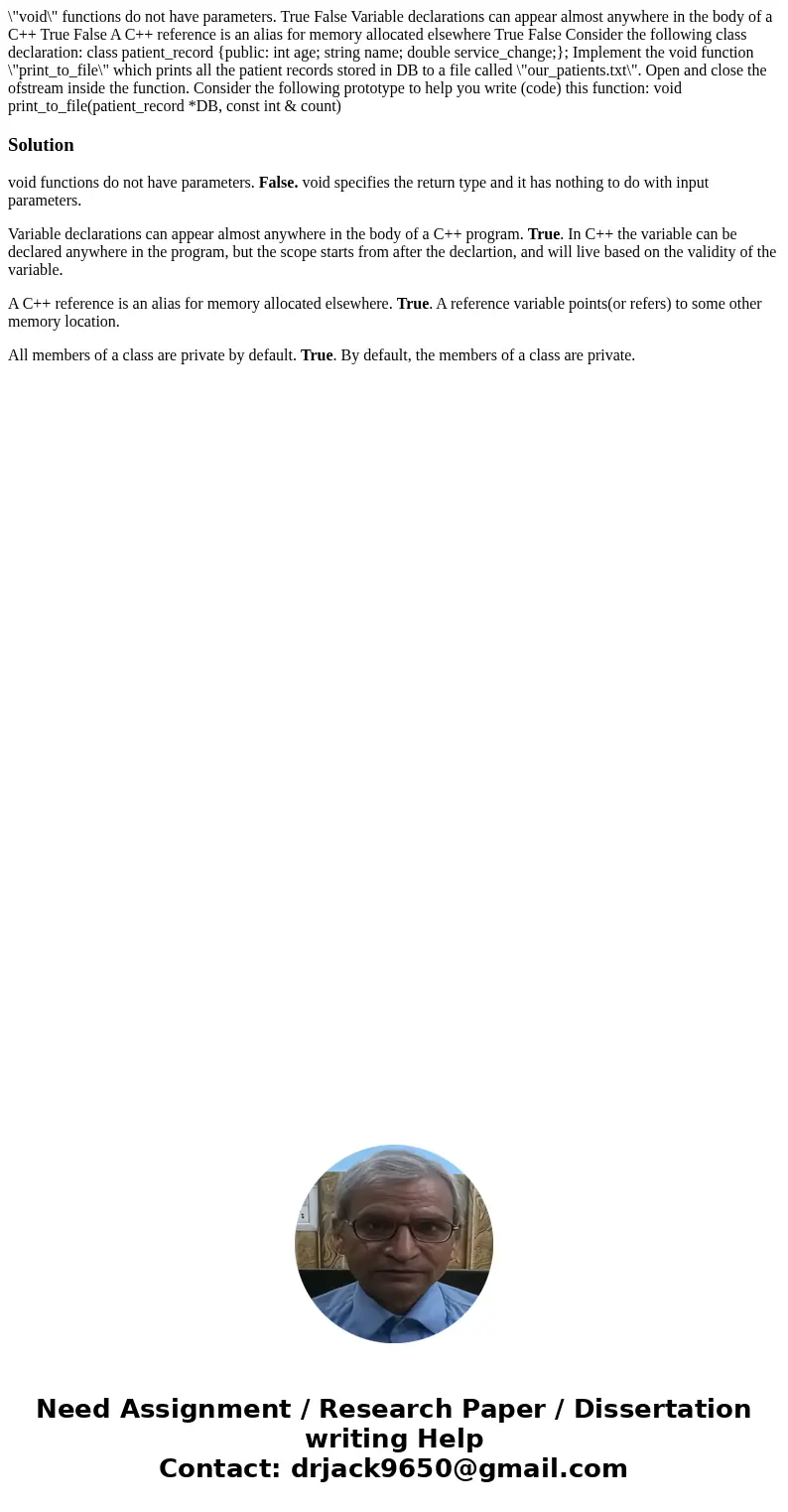void functions do not have parameters True False Variable de
\"void\" functions do not have parameters. True False Variable declarations can appear almost anywhere in the body of a C++ True False A C++ reference is an alias for memory allocated elsewhere True False Consider the following class declaration: class patient_record {public: int age; string name; double service_change;}; Implement the void function \"print_to_file\" which prints all the patient records stored in DB to a file called \"our_patients.txt\". Open and close the ofstream inside the function. Consider the following prototype to help you write (code) this function: void print_to_file(patient_record *DB, const int & count)
Solution
void functions do not have parameters. False. void specifies the return type and it has nothing to do with input parameters.
Variable declarations can appear almost anywhere in the body of a C++ program. True. In C++ the variable can be declared anywhere in the program, but the scope starts from after the declartion, and will live based on the validity of the variable.
A C++ reference is an alias for memory allocated elsewhere. True. A reference variable points(or refers) to some other memory location.
All members of a class are private by default. True. By default, the members of a class are private.

 Homework Sourse
Homework Sourse